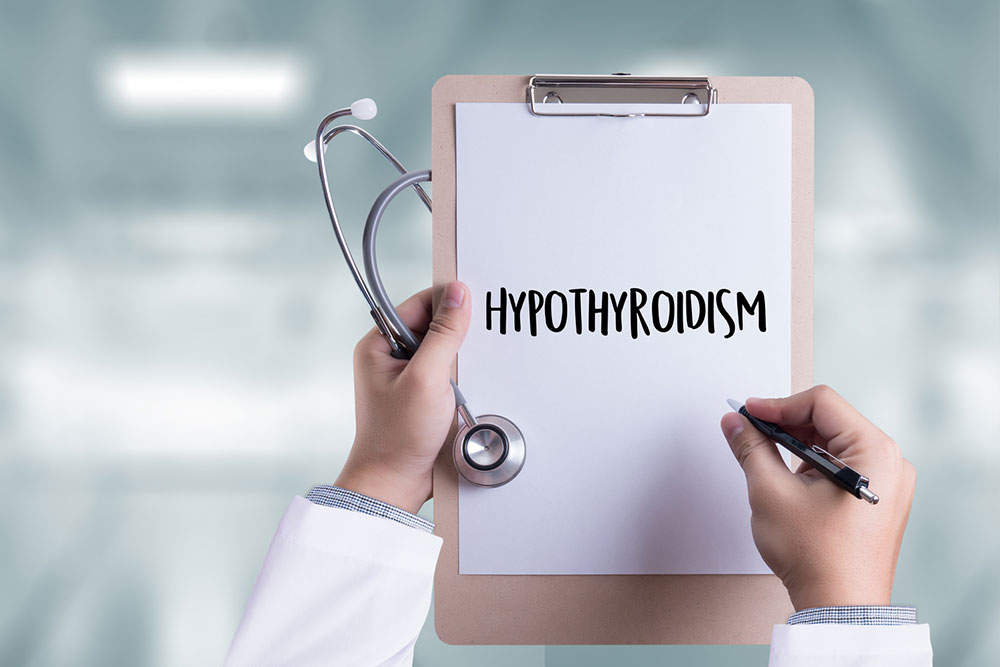Comprehensive Guide to Thyroid Disorders: Causes, Symptoms, and Effective Treatments
This comprehensive guide explores thyroid disorders, including their causes, symptoms, and treatment options. Understanding how autoimmune diseases, cancer, inflammation, and pituitary issues impact thyroid health can aid in early detection and management. The article provides insights into symptoms to watch for and discusses effective medical and lifestyle treatments, offering valuable information for those experiencing thyroid problems or seeking to maintain thyroid health for overall well-being.

Introduction to the Thyroid Gland
The thyroid is a vital butterfly-shaped gland located at the front of your neck, just below the Adam's apple. This small but powerful organ plays a central role in regulating your body's hormonal balance, influencing a wide range of physiological functions. The hormones produced by the thyroid directly impact your metabolism, energy levels, brain function, and overall health. Any imbalance—whether the thyroid produces too much hormone (hyperthyroidism) or too little (hypothyroidism)—can lead to significant health issues that may affect your quality of life.
Common Health Conditions Linked to Thyroid Dysfunction
Goiter — an abnormal enlargement of the thyroid gland
Thyroid nodules — lumps that form within the thyroid tissue
Hashimoto’s thyroiditis — an autoimmune disease causing hypothyroidism
Graves’ disease — an autoimmune disorder leading to hyperthyroidism
Unexplained weight fluctuations
Thyroid cancer — malignant growths potentially disrupting hormone balance
Root Causes of Thyroid Disorders
Most thyroid problems stem from hormonal imbalances caused by various factors. These can include autoimmune responses, genetic predisposition, iodine deficiency, inflammation, or disturbances in the regulation from the pituitary gland. Understanding these causes can aid in early detection and treatment of thyroid health issues.
Autoimmune Disorders and Thyroid Imbalance
One of the main causes of thyroid dysfunction is autoimmune diseases like Graves’ disease and Hashimoto’s thyroiditis. In Graves’ disease, the immune system mistakenly attacks the thyroid, causing it to produce excessive hormones, leading to hyperthyroidism. Conversely, Hashimoto’s results in the destruction of the thyroid tissue, leading to decreased hormone production and hypothyroidism.
Thyroid Cancer and Growth Abnormalities
Though relatively rare, thyroid cancer can develop within the gland, often manifesting as lumps or nodules. These cancerous growths may interfere with the normal secretion of hormones, sometimes causing hyperthyroid symptoms or other metabolic disturbances. Early detection and treatment are crucial for a favorable prognosis.
Inflammatory Causes of Thyroid Dysfunction
Subacute thyroiditis involves inflammation of the thyroid gland, often caused by viral infections or immune responses. This condition can cause the gland to release excess hormones temporarily, resulting in hyperthyroidism that can last from a few weeks to several months. It often resolves on its own, but medical management can help alleviate symptoms.
Role of the Pituitary Gland
Problems with the pituitary gland — the master gland regulating hormone production — can also impact thyroid function. Excessive secretion of Thyroid-Stimulating Hormone (TSH) from the pituitary can lead to overstimulation of the thyroid gland, causing it to produce too much hormone. Conversely, insufficient TSH can contribute to hypothyroidism.
Recognizing Symptoms of Thyroid Disorders
Early detection of thyroid issues is essential for effective management. Be alert to symptoms such as:
Chronic fatigue or unexplained tiredness
Difficulty losing weight despite dieting
Muscle weakness and joint pain
Irregular or painful menstrual cycles, PMS fluctuations
Mood swings, depression, heightened anxiety
Constipation and digestive sluggishness
Visible swelling or enlargement at the front of your neck (goiter)
If you experience any of these symptoms persistently, consulting a healthcare provider for thorough diagnosis—including blood tests and imaging—is crucial for determining the root cause and initiating appropriate treatment.
Effective Treatments for Thyroid Disorders
Managing thyroid conditions involves tailoring treatments to the specific disorder and severity. Options include medication, lifestyle adjustments, and sometimes surgical interventions.
Medication-Based Management
For hypothyroidism, doctors typically prescribe synthetic thyroid hormones such as levothyroxine to restore hormone levels to normal. In hyperthyroidism, antithyroid medicines like methimazole can help reduce hormone overproduction. In some cases, beta-blockers are used to control symptoms like rapid heartbeat and tremors.
Surgical and Radioactive Treatments
When nodules or goiters are large or suspicious for cancer, surgical removal (thyroidectomy) may be recommended. For hyperthyroidism, radioactive iodine therapy can selectively destroy overactive thyroid tissue, often leading to hypothyroidism, which then requires hormone replacement therapy.
Lifestyle and Home Remedies
Dietary adjustments, regular exercise, managing stress, and avoiding iodine deficiency are important aspects of managing thyroid health. Adequate iodine intake is vital, but excessive iodine can worsen certain conditions, so consulting a healthcare professional for personalized advice is essential.
Advancing Research and Future Outlook
Ongoing research into autoimmune triggers, genetic factors, and novel treatment options continues to improve our understanding of thyroid disorders. Emerging therapies and improved diagnostic tools promise more effective and personalized approaches to managing these conditions in the future.
In conclusion, understanding the causes, symptoms, and treatment options for thyroid disorders enables better health management. Timely diagnosis, proper medical intervention, and lifestyle modifications can greatly enhance quality of life for those affected by these conditions. If you notice any symptoms related to your thyroid health, seeking prompt medical advice is the best course of action to ensure optimal health and well-being.





